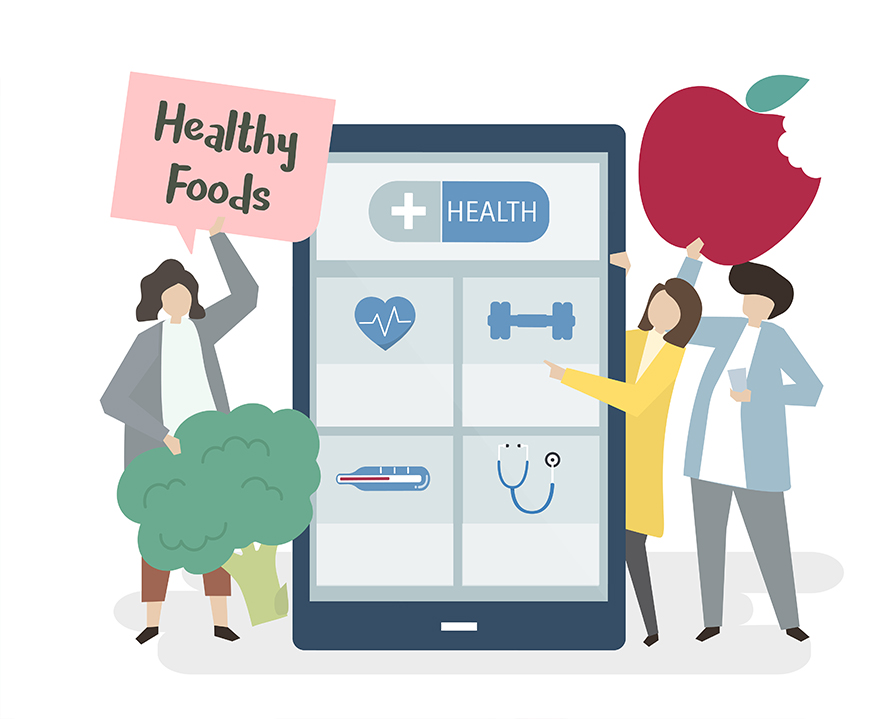Did you know that your kidneys filter through approximately 52 gallons (200 litres) of blood throughout a given day!
Overview
Kidneys perform a range of vital functions, such as producing urine, blood filtration, regulating blood pressure, and, how can we forget, maintaining electrolyte balance? But, at times, due to various reasons such as high blood pressure, obesity, a poor lifestyle, and unhealthy eating habits, our kidneys lose their well-functioning ability. Furthermore, this leads to a build-up of toxic waste and fluids, which are life-threatening at times. This is the sole reason for maintaining a proper diet for kidney and
dialysis patients.
Some of you might be wondering
what dialysis is.
In simple terms, dialysis is basically offered to patients who are suffering from serious kidney diseases. This line of treatment removes extra water and filters waste. Broadly speaking, there are two types of dialysis. Namely;
- Haemodialysis
- Peritoneal dialysis
Why is diet for kidney and dialysis patients important?
Since the kidneys’ ability to function effectively diminishes, it becomes important for the patient to closely monitor his lifestyle choices and his diet. This is done to reduce unnecessary strain on the kidneys. A proper dialysis diet chart;
- Reduces the possible risk of infection
- Helps in maintaining a healthy weight
- The chances for disease progression are reduced.
One must not forget that dialysis is a treatment and should be followed by a proper diet to obtain the best possible outcome from this treatment. Additionally, maintaining a proper diet along with the treatment also reduces the chances of any additional health issues.
Know the elements
There is a wide range of information available on the internet, providing every intricate detail regarding each and every type of food you consume. But, the essence of that information is that a person suffering from kidney problems who is on dialysis needs to be careful about the intake of the following elements:
- Potassium
- Sodium
- Phosphorus
- Fluids
Each of the above-mentioned elements is absolutely necessary for a human body to function effectively and efficiently. But, with kidney problems, it becomes tough for our body to flush out the waste, and this in turn has a negative effect on our body. In order to avoid all the complications, dialysis patients should limit their consumption of these minerals.
Let us understand this by taking into consideration one element.
Potassium is an essential mineral for our body. It is found in bananas, avocados, broccoli, raisins, etc. If consumed in excess, it leads to conditions such as cardiac arrest or irregular heartbeats. Conversely, if it is consumed less than required, it leads to difficulty breathing along with muscle cramps. Due to this reason, this mineral needs to be consumed moderately and under proper medical guidance. The same goes for other elements as well. Which is why a dialysis diet chart is advised to be followed.
A quick food checklist
Food to avoid or dialysis food restrictions
- Avocados
- Bananas
- Potatoes and sweet potatoes
- Pickles and olives
- Dairy products
- Packaged, instant and pre-made meals
- Apricots
- Processed meat
- Brown rice
- Dark coloured soda
Food to relish
- Cauliflower
- Cabbage
- Blueberries
- Egg whites
- Garlic
- Onion
- Fish
- Pineapple
- Turnips
- Raspberries
Note from Blue Bliss
“It is health that is real wealth and not pieces of gold and silver”
Maintaining a healthy diet is important not only to individuals suffering from kidney diseases and undergoing treatments but also to healthy folks. We understand that diet requirements for each patient are different and provide the best treatment plan as per individual needs and requirements. If you or your loved ones are suffering from any such conditions, kindly seek medical advice from our
top nephrologists in Bangalore. We design specialised dialysis diet chart and also advice on dialysis food restrictions as per the individual requirements.
